Achebe at 90: What would he have said?
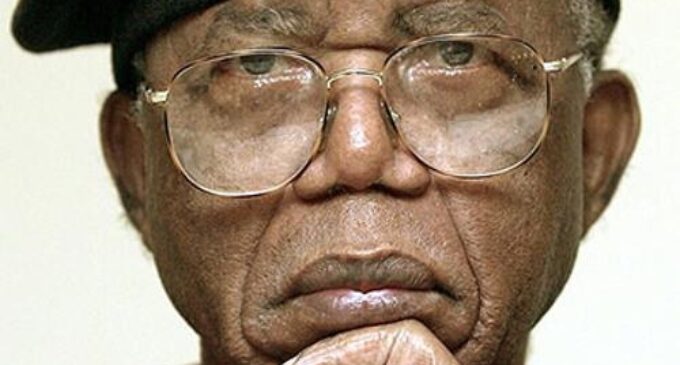
As the literary community marks the 90th posthumous birthday of Chinua Achebe, it is an opportune moment to wonder what the literary colossus would have said of the Nigerian deteriorating situation which reached its peak recently with the mass protests by Nigerian youths. Certainly, he must have shaken his head in pity for the Nation having had a sense of foreboding of the current near-comatose state of Nigeria; a country with whom he had a fractious relationship all his adult life as vindicated by his art.
He had confessed that his generation was a “lucky one”, which had almost all it needed. “It has often been said that my generation was a very lucky one. And I agree”, he writes in There Was A Country. The sharp contrast between the fortunes of his generation and those of the soro soke generation who are clearly No Longer At Ease might have caused him a sense of elite guilt, knowing that he is vicariously liable in the ugly outcome that is today’s Nigeria, by being a member, I should say, a Senior Citizen of that generation in whose palm the proverbial coal smoldered. But he may have a good case in pleading his innocence having remained consistent in his repudiation of that rapacious political class who sold their collective consciences and set the then-new Nation on a path, it is yet to return from.
In his “angry book”, The Trouble With Nigeria, Achebe had laid the problem of the Nigerian state at the foot of leadership. It is a book that sums up his disgust at the Nigerian political establishment on one hand, and which cast a dark pall on any hopes of National epiphany given the gigantic nature of the problem.
“The problem with Nigeria is simply and squarely a failure of leadership. There is nothing basically wrong with the Nigerian land or climate or water or air or anything else. The Nigerian problem is the unwillingness or inability of its leaders to rise to the responsibility, to the challenge of personal examples which are the hallmarks of true leadership”, he writes. That was some 35 years ago. Yet it reads like today. A testament of how the needle of change has anything but moved.
By all accounts, the situation has gotten worse with the addition of national insecurity to the long menu of Nigeria’s malaise. In the last ten years, the country has contended with a homegrown insurgency that has cost the Nation Man and machine. Today, it has assumed even more debilitating dimensions in the form of banditry, kidnapping, cattle rustling, and a general state of national disquiet owing to security concerns. How did we get here? Achebe would have known, as the prognostication in his letters proves.
A writer of the first rank, he had battled the system with the finery of his ink, and on occasions deploying censorship to register his protest. Twice he would reject entreaties of National Honour by the Nigerian authorities to vent his spleen against the system.
In 2004 after being nominated for the award of Commander of the Federal Republic (CFR) by the Olusegun Obasanjo administration, Achebe, in declining the offer blared, “….for some time now I have watched events in Nigeria with alarm and dismay. I have watched particularly the chaos in my own state of Anambra where a small clique of renegades, openly boasting its connections in high places, seems determined to turn my homeland into a bankrupt and lawless fiefdom. I am appalled by the brazenness of this clique and the silence, if not connivance, of the Presidency”. It was in those dingy days in Anambra State.
Again in 2011, his decline of a similar offer by the Goodluck Ebele Jonathan government was enough to earn him the status of the conscience of state. This time, the reason was simple, but by all means vintage Achebe. “The reasons for rejecting the offer when it was first made have not been addressed let alone solved. It is inappropriate to offer it again to me. I must therefore regretfully decline the offer again”, Achebe said in the letter to the former President.
It must therefore hurt, for a man who gave everything to see his country rise up to its full stature in the comity of Nations, but which remains a Nation of missed opportunities. He would have deconstructed the protests, particularly the violent and destructive turn it took in its last days, as the consequence of the “social injustice and cult of mediocrity” he wrote about in The Trouble With Nigeria.
“Having touched ever so briefly on the social injustice in our public service let us go one step further and attempt to bring into picture those of our people who exist far below, and untouched by, our minimum wage controversies: the peasant scratching out a living in the deteriorating rural environment, the petty trader with all his wares on his head, the beggar under the fly-over and millions and millions that you cannot even categorize…these are the real victims of our callous system, the wretched of the earth. They are largely silent and invisible. They don’t appear on the front pages; they do not initiate industrial actions. They drink bad water and suffer from all kinds of preventable diseases. There are no hospitals within reach of them; but even if there are they couldn’t afford to attend”, he writes.
Anyone who takes a sociological analysis of the looting and destruction that visited Lagos would have come to the realization that it was the expression of anger against the system, by the demographics Achebe describes above. That demography has swelled in the last three decades with the Nigerian population and they are today a lived threat to National security. Having been abandoned by the Nation and its leaders, they are prepared to take up arms against the state and its privileged elite and vanishing middle class, to eke out a living. He might have also situated the social conundrum as the steep price of leadership neglect and political corruption by which the resources of the Nation were looted and vandalized by its marginal political elites.
Little wonder his recipe for any change or National rebirth, is anchored on the repudiation of that corrupt establishment. “I have stated elsewhere that this mindless carnage will end only with the dismantling of the present corrupt political system and banishment of the cult of mediocrity that runs it, hopefully through a peaceful democratic process”, he writes in his controversial memoir: There Was A Country.
He goes further to provide a roadmap for this “National resuscitation and recovery”. “I foresee the Nigerian solution will come in stages. First we have to nurture and strengthen our democratic institutions–and strive for the freest and fairest elections possible. That will place the true candidates of the people in office. Under the rubric of a democracy, a free press can thrive and a strong Justice system can flourish. The checks and balances we have spoken about and the laws needed to curb corruption will then naturally find a footing. A new patriotic consciousness has to be developed, not based simply on the well-worn notion of the unity of Nigeria or faith in Nigeria often touted by our leaders, but one based on an awareness of the responsibility of leaders to the led—on the sacredness of their anointment to lead-—and disseminated by civil society, schools, and intellectuals. It is from this kind of environment that a leader, humbled by the trust placed upon him by the people, will emerge, willing to use the power given to him for the good of the people”.
This is a tall-order by all means. But there is no denying that any hopes of rebirth lie within its actualization by all stakeholders involved in the Nigerian project. I think this is where the soro-soke generation must stand up to be counted. And it is gratifying that they seem to be waking up to the enormous responsibility thrust on their shoulder by history and providence, thanks to the #EndSARS protests.
I have often argued that the Nigeria of our dreams will not be built by the generation of our fathers. That generation who witnessed the war as teens has been proven time and again to have failed the soro-soke generation. At least one of its senior members—Atedo Peterside had the decency to acknowledge as much before the whole world in an interview with Arise TV. What this means is that the soro-soke generation have their work cut out for them.
As the problem of Nigeria is primarily one of leadership, it raises the all-important-question of the process through which the Nigerian leaders emerge. Here, I speak of the electoral process as Achebe himself had mooted. These millennials must see to the holistic reform of the electoral process so that the process would not only be transparent but also produce leaders with the hard and soft skills to undertake the gigantic work of rewriting the Nigerian development story. They must be vigilant, organized and strategic to be able to challenge the reactionary forces in the present establishment with the mindset of the status quo. Happily, they have the social media as a veritable tool of organizing and expression. They must use as a weapon, as they beat the path to “National Resuscitation” in the considered words of Achebe.
Whilst his legacy remain undisputed particularly in the Arts where he rose to become the Father of African Literature (an honour he would reject), the fractious relationship he had with his motherland on account of the indiscipline of its political leaders up until his death, seven years ago, puts it beyond peradventure that the literary hero remains un-reconciled with his place of birth, even in death. My sense is that any hopes of posthumous reconciliation can come when Nigeria makes a serious dash at rising to its full potentials. In this 90th posthumous birthday, the question lingers: who will bell the cat?
May his soul continue to rest in peace and may his memory be a blessing to us.
Raymond Nkannebe, a Lawyer, writes from Lagos. He tweets @RayNkah.
Views expressed by contributors are strictly personal and not of TheCable.

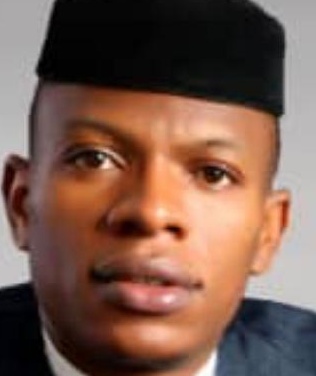


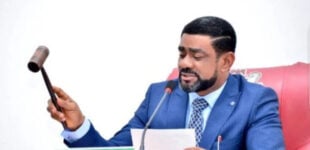
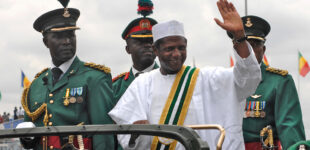




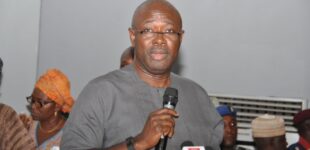

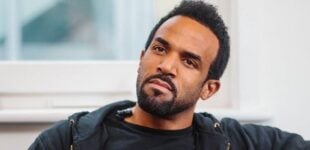

There are no comments at the moment, do you want to add one?
Write a comment